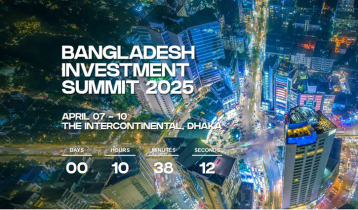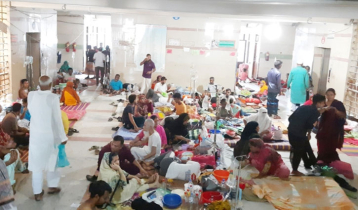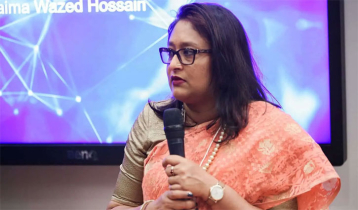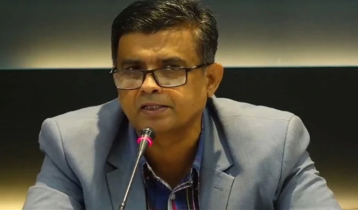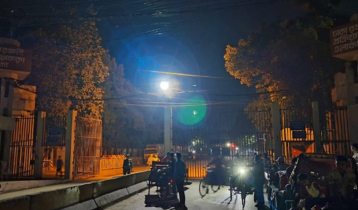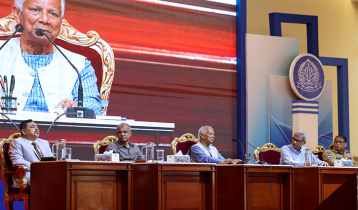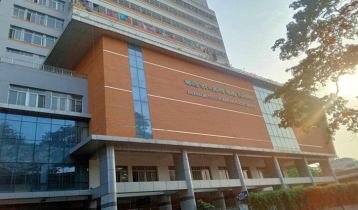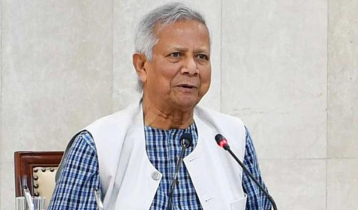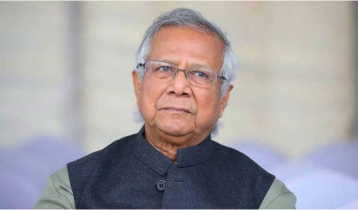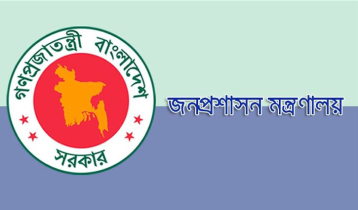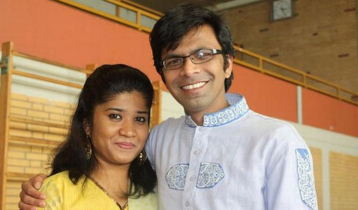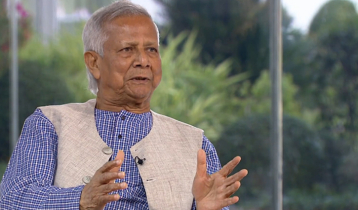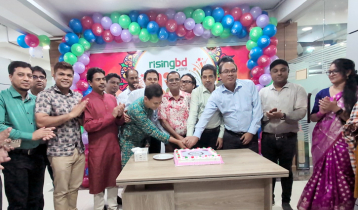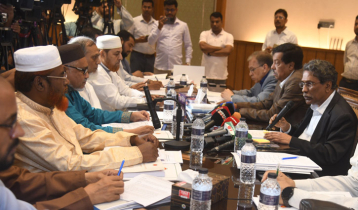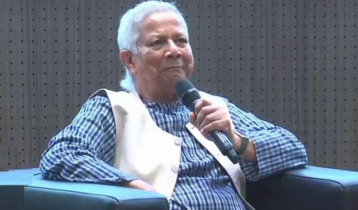Need for ADR in Bangladesh
Tansim Noor || risingbd.com

Introduction:
The term ‘ADR’ simply means Alternative Dispute Resolution, which refers to other methods that are available to resolve a dispute, apart from court proceedings; these ADR methods involve arbitration, mediation, negotiation, etc. In today’s world, day by day, ADR is gaining widespread significance. However, people residing in Bangladesh still today, despite the enactment of the Arbitration Act 2001, do not properly comprehend the idea of ADR. Although slowly the justice system of Bangladesh will fully integrate ADR and people will have sufficient knowledge about it, the enactment of the Arbitration Act 2001 was one of the first steps, and mediation can be traced in the Family Courts Ordinance of 1985.
Benefits of ADR:
Before implementing ADR services or advocating the increased significance of ADR in Bangladesh, its benefits must be assessed. To begin with, ADR is cost-friendly; this is because lower legal fees are associated with ADR methods. Also, since parties avoid court litigation, a huge sum of money is being saved, and usually parties going for ADR fully settle their issues, so there is no chance of appeal like in the court litigation scenarios, hence saving further costs. ADR services like mediation, arbitration, and negotiation are very time-friendly compared to litigation since a settlement can be reached quickly, also because of a smaller number of procedural delays, and these methods also provide flexibility. ADR maintains confidentiality and privacy, providing protection to secret and sensitive information of the parties; for example, if a large business implements ADR like arbitration, their trade secrets will be protected as a result, and both their corporate and personal reputations are safeguarded. Unlike the hectic procedure of court litigation, ADR services provide a more relaxed environment for the parties that ensures emotional well-being. Moreover, when a party goes through court litigation, the ruling of the court can be damaging for one party; however, ADR is focused on a win-win situation for both parties when resolving a dispute, causing minimal damage to both parties and saving their reputation in the long run. ADR also reduces the excess number of cases that go for litigation, which reduces the pressure from court, as unwanted or a huge number of cases can be solved through ADR.
Why ADR is not implemented in Bangladesh:
It is important to examine the people’s lack of knowledge when it comes to ADR in Bangladesh; only a few businesses, certain legal professionals, and a few institutions know about ADR, but in general, people only run after court litigation. A lot of people in Bangladesh are unaware of the operations and functions of their country’s legal field; hence, the concept of ADR is alien to them. Despite acknowledgement of ADR in Bangladesh via the Arbitration Act 2001 and the Code of Civil Procedure (Amendment) Act 2003, ADR still lacks institutional promotion, as it is visible that citizens do not know about any well-established ADR centres, which restricts the implementation of ADR services like arbitration and mediation; also, no initiatives on such establishments are taken, for example, the Bangladesh International Arbitration Centre (BIAC) is not known by many and underutilised, although established in 2011. Another issue is that the litigants of Bangladesh do not communicate with clients about ADR; this is because a lot of the lawyers themselves do not know about the advantages of ADR or do not fully understand the potential of ADR or do not talk about it openly due to lack of incentives, resulting in further slow popularity of ADR, making the court litigation busier with unwanted cases. Another issue that may be seen is that people do not trust ADR services compared to litigation; this emerged probably because of the lack of knowledge they have about ADR, and so they do not want to explore ADR like arbitration or mediation and risk their complaints. Moreover, some enforcement issues can be seen as well, despite Arbitration’s arbitral award being acknowledged in the Arbitration Act 2001; the provisions that are found in the Arbitration Act 2001 and the Code of Civil Procedure (Amendment) Act 2003 lack appropriate enforcement, as there is no proper body in Bangladesh that maintains proper regulations of ADR services, decreasing the efficiency of such services and leading towards persistent delay.
Solution and Why ADR Will Help Bangladesh:
Fortunately, regardless of all these problems, it is still possible to make ADR popular in Bangladesh. First of all, a way should be figured out to promote ADR through court; for this, the UK’s pre-action protocol, which is followed in civil claims, or something similar to the pre-action protocol, can be introduced. So basically, in the UK, before commencing litigation, both parties have to follow the pre-action protocol, and in this pre-action, courts highly recommend ADR, like arbitration, and if a party skips ADR unnecessarily, they get penalised by the court later. If something similar to this is introduced, the knowledge of ordinary people of Bangladesh about ADR will increase. If successfully, ADR is promoted in front of the general public of Bangladesh, ADR centres like BIAC will not be underutilised anymore, as they will be used more, leading to the government making investments for ADR centres or even expanding ADR centres from major cities to rural areas. This simple method will make the public of Bangladesh explore ADR, which will make them more aware of the system of ADR, and once they explore it, chances are they may like the system due to the benefits it offers; thus, their trust in ADR will also increase.
Moreover, the issue of lack of knowledge of lawyers can easily be countered by the Bangladesh Bar Council; they can create a training certification program for lawyers on ADR, and they can also integrate a topic of ADR in bar examinations. For the new generation of lawyers, a subject of ADR can be added to their LLB program in universities of Bangladesh, like in India, where ADR has been added as a subject in the undergraduate program under many law schools and universities. A system of performance-based fees can be introduced for ADR so that lawyers do not think ADR is not worthy and advise the clients about it. If this is done successfully, it will mean lawyers will be trained in the field of ADR, so whenever one corporation goes into a contract with another corporation, of course they seek a lawyer’s advice, and since the lawyers of the new generation hold knowledge of ADR, they are likely to advise their clients to add an ADR clause to the contract, thus further promoting the system.
Furthermore, the enforcement issue of ADR can be dealt with easily. This can be done by establishing a strong regulatory body for ADR in Bangladesh. Further, stronger rules and regulations can be developed, which can be done by strengthening ADR guidelines that can be maintained by the strong regulatory body for ADR; this body can also ensure and improve transparency in arbitration. Even backup from court can be used for enforcement of arbitral awards, which is clearly mentioned in the statutory provision of the Arbitration Act 2001. This will mean court-annexed ADR, which is already available in Bangladesh through the Code of Civil Procedure (Amendment) Act 2003.
Additionally, in order to bring more innovation and development in the system of ADR, all the nations that are implementing ADR or countries where the significance of ADR is increasing slowly can build a forum where ADR specialists from different countries can share their own experiences and ideas in order to promote ADR further and enhance the ADR services more; this is highly beneficial since there is a growth of international commerce and businesses that usually go for ADR services like arbitration due to global enforceability, for being both time- and cost-friendly.
In Bangladesh, there is an excess number of cases in court litigation as about 4.2 million lawsuits are pending in the courts, pressurizing the courts with a lot of cases due to the absence of appropriate ADR services; as a result, many cases are pending for a long time. William Gladstone mentions, “Justice delayed is justice denied,” which has been the scene in Bangladesh’s judiciary because of the large number of cases; justice is not being served in a timely manner, and justice is costly, so this is the time to give ADR an active role in Bangladesh.
In Italy during 2010-2011 had a similar issue like in Bangladesh, at this time the number of cases that has been pending in the Italian courts rose to 5.4 million, for which mediation was made mandatory through Decree 28/2010, despite this facing resistance at first mandatory mediation obtained success as tens of thousands of cases was mediated since March 2011. Making mediation mandatory is not suggested, but if ADR can make a huge change in Italy, then Bangladesh should implement it to sustain a better legal system to make it better and relieve the pressure on it. Another example would be Canada, where ADR grew in the 1980s and 1990s and soon became effective. Canada’s Supreme Court in Hryniak v Mauldin mentions the rule of law can be upheld through proper access to justice and acknowledges the new adjudication methods. If implementing ADR helps countries like Canada and Italy to decrease pressure from courts and improves the quality of justice, then enhancing the legal framework of ADR will also benefit Bangladesh.
Lastly, applying ADR in Bangladesh also upholds the constitution of Bangladesh. The preamble of the constitution of Bangladesh believes in the rule of law and access to justice for all the citizens, aligning with ADR services goals. Moreover, Article 27 of Bangladesh’s constitution ensures equality before the law, and Article 35 mentions, in respect of trial and punishment, both can be safeguarded via ADR methods.
Conclusion:
Peacemaker Kenneth Cloke, founder of Mediation Beyond Borders International, indicates that without disorder, no new world is created; likewise, the legal system of Bangladesh has already gone through a lot of issues; now it is time to heal it by proper integration of ADR, securing the future.
The writer is a student of BPP University, London. Barrister training course with professional legal studies (masters)
Dhaka/AI

